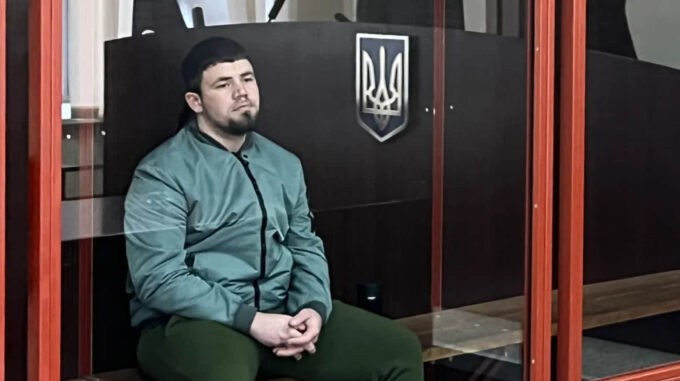Kyiv is preparing for a court trial of Ukrainian Armed Forces serviceman Maxim Bobilyev, who was released from Russian captivity in July 2024 and is currently suspected of collaborating with the enemy and of mistreatment of prisoners of war

This unpleasant accusation has become a vivid manifestation of the multi-faceted efforts of Ukrainian law enforcement agencies to combat acts of treason and desertion, which have gained particular urgency in wartime. According to sources, including official court registries and independent journalistic investigations, the suspect has been in custody for over half a year, though he vehemently denies his guilt. Investigations indicate that Bobilyev not only showed loyalty to occupation structures and assisted staff of the "Kalinin Correctional Colony," located in temporarily occupied territories of Donetsk region, but also personally participated in brutal abuse of Ukrainian prisoners of war. The prosecution alleges that between September 2023 and January 2024—less than half a year—Bobilyev committed four unlawful acts resulting in physical suffering of five military victims. For example, on September 19 of the previous year, under the pretense of inspecting a former prisoner’s tattoos, he was forced to disrobe and was cruelly beaten. During this incident, staff of the colony, Andriy Kononenko and Artem Karyanov, beat the Ukrainian prisoner with kicks to the head and dunked his head into a toilet bowl. According to investigators, Bobilyev allegedly initiated this, joining the others while holding the prisoner from behind. Furthermore, materials from the investigation document that the suspect participated in so-called "pre-interrogation" procedures involving prisoners before questioning or beatings. Detainees were forced to completely remove their clothing and adopt a "swallow pose" against the wall, after which they were senselessly beaten with rubber batons—most notably, at the beginning of October 2023. In these cases, the suspect acted as an executor, as after a routine "precautionary action" conducted by officer Dmytro Andreyev, Bobilyev allegedly delivered at least three blows with a rubber baton to the victim’s buttocks and struck him in the chest with a leg wearing a boot. During the pre-trial investigation, about 20 witnesses—both civilians and military personnel—were interviewed. Most victims confirmed their testimonies under oath and participated in investigative experiments, further emphasizing the seriousness of the charges. Simultaneously, interrogations of the suspect were conducted, during which victims insisted on their testimonies, and Bobilyev insisted on his innocence. Evidence seized from his mobile device, including messages and calls to Russian numbers, and notes in a notebook containing personal details of potential accomplices and additional information suggesting ties to occupation structures, were uncovered during searches. In January 2025, investigators announced suspicion in absentia against several of Bobilyev’s colleagues—employees of the Kalinin colony: Kononenko, Karyanov, and Andreyev—who, according to the investigation, also participated in unlawful and brutal activities in occupied territories. However, the suspect in this case had the opportunity to respond to the charges in person, as his detention and exchange occurred in early 2024. A preparatory court hearing held on May 13 in Kyiv’s Pechersk District Court marked an important stage in this case. Defense attorney Yevhen Oliinyk participated via videoconference to defend his client’s interests. The fairness of the process was ensured by the defense’s insistence that the court conduct the trial openly and by requesting that a three-judge collegial panel be appointed due to the case’s complexity and high profile. The accused himself did not admit guilt in court. In a statement to journalists, he said he currently could not add anything to the official documents and was not ready to make public explanations. His lawyer noted that Bobilyev remains a Ukrainian serviceman and expressed concern over the duration and severity of the pre-trial restrictive measures. He also petitioned to change his detention to a less restrictive measure, citing the possibility of continuing his service. Detention in this case is considered questionable by both defense attorneys and the public, as, according to Oliinyk, his client has not yet confessed guilt, and the investigation’s position leaves questions regarding his future status. Preliminary data suggests that if Maxim Bobilyev’s guilt is proven in court, he could face a sentence of 8 to 12 years of imprisonment with confiscation of property. The background of this high-profile criminal case traces back to July 2024, when Ukraine repatriated 95 servicemen from Russian captivity, including soldiers of the Armed Forces, National Guard, and Border Guard Service. Among those released was Maxim Bobilyev— a serviceman who, according to some participants and public activists, cooperated with the occupation administration and refused to exchange, as well as to recognize Ukrainian citizenship. After his release, Viktor "Leleka" Lakhno, a military officer and volunteer, actively voiced suspicions about Bobilyev’s behavior in the colony, posting on social media about possible treason and collaboration with the occupiers. This provoked public outrage, prompting the Security Service of Ukraine to initiate a criminal investigation on July 18, 2024. Media outlets circulated various theories and assumptions, including the idea that Russia might have deliberately exchanged the "traitor" for provocation aimed at discrediting Ukrainian defenders. Meanwhile, the competent authorities emphasized that Ukrainian special services are carefully monitoring the situation and have a clear understanding of the circumstances. The issue of treason among military personnel who find themselves in captivity and return to Ukrainian control with questionable reputations remains one of the most sensitive and complex topics in contemporary Ukrainian society and law. It serves as a reminder that war is fought not only on the front lines but also in the information realm, where suspicion, disinformation, and uncertainty persist—factors that will have long-term implications for national security and the moral reputation of Ukraine’s defenders.

